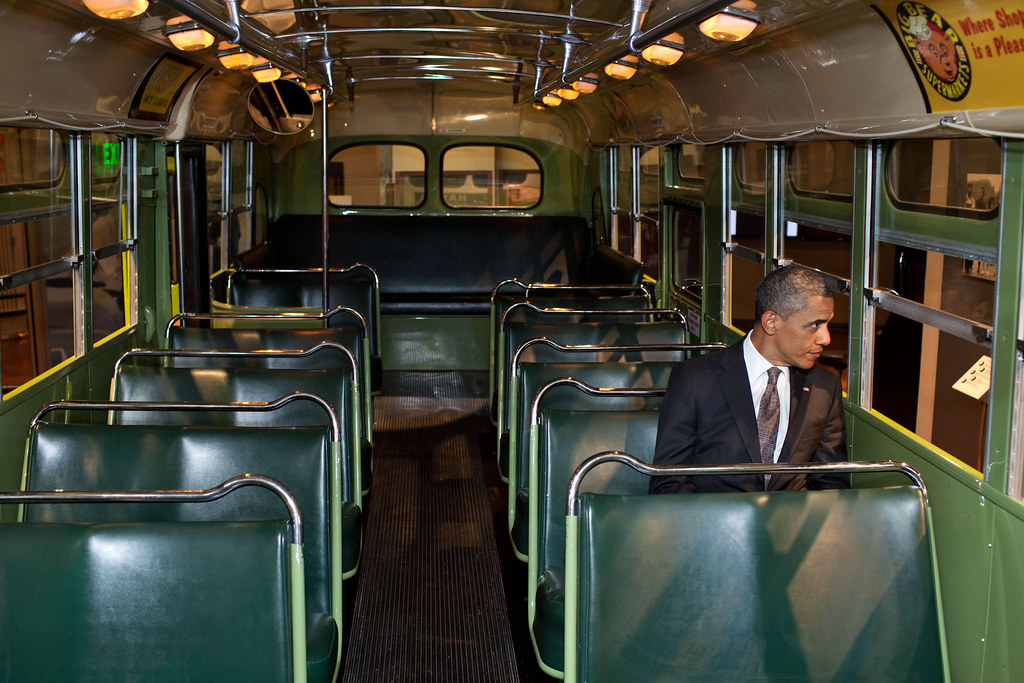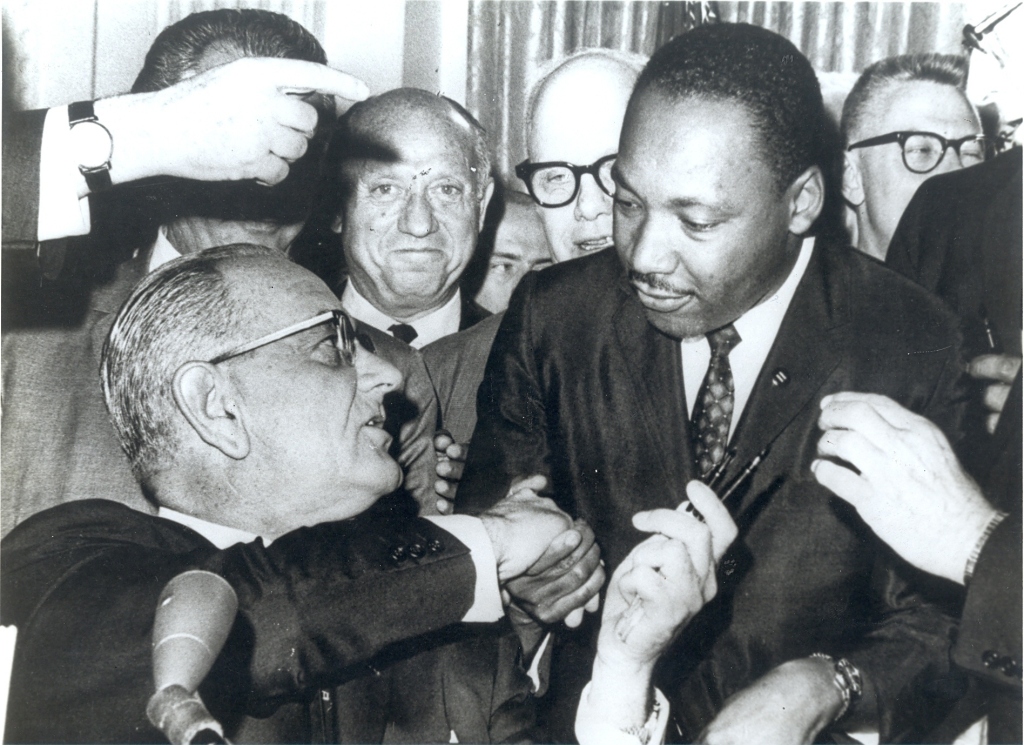Martin Luther King Jr. Day in the United States is a holiday to commemorate the leader of the Civil Rights Movement in 1960s America. To celebrate his legacy, Flickr has put together a collection of images from The Flickr Commons organizations documenting social conditions experienced by African-Americans in America during segregation and the rise of civil movements demanding an end to racial segregation.
Before the mid-1960s, African Americans were excluded from the political system in most southern states and racial segregation was imposed by law. The civil resistance movements of the 1950s and 1960s challenged racism through nonviolent protest and civil disobedience. Forms of protest in many states included boycotts, sit-ins, and marches that occasionally became violent.
On December 1, 1955 Rosa Parks refused to give up her seat for a white passenger on this Montgomery bus, was arrested, and helped begin the civil movement by putting in motion a bus boycott that lasted 381 days.
Dr. Martin Luther King Jr. became the leader of the Montgomery Bus Boycott and his words and ideas inspired millions around the country, white and black, to take action in demand for fair and equal civil rights.
In 1963, King met with President John F. Kennedy after a March on Washington where thousands of people demanded civil and economic rights for African Americans. This is when King delivered his famous ‘I have a dream‘ speech that was televised around the world.
In 1964, President Lyndon Johnson signed the Civil Rights Act that banned discrimination based on “race, color, religion, sex or national origin” in employment practices and public facilities, legally ending Jim Crow laws in the South and ushering in a new era of political and social equality that is still facing challenges in the United States.
After King’s assassination in 1968, a wave of riots and marches in his memory swept major cities across the country. His birthday later became a national holiday.
It’s important to know the history behind what may seem like an arbitrary day off from work. Be sure to visit the Martin Luther King Day Gallery on Flickr to see more images and get inspired by the heroes of the Civil Rights Movement!



![[Signs carried by many marchers, during the March on Washington, 1963] (LOC)](https://live.staticflickr.com/3922/15359680455_b0329816d0_b.jpg)
![[Participants, some carrying American flags, marching in the civil rights march from Selma to Montgomery, Alabama in 1965] (LOC)](https://live.staticflickr.com/2949/15356484611_f20743493e_b.jpg)
![Civil Rights March on Washington, D.C. [A wide-angle view of marchers along the mall, showing the Reflecting Pool and the Washington Monument.], 08/28/1963](https://live.staticflickr.com/2597/4100755141_32116f92f3_z.jpg)
![[Civil rights leaders meet with President John F. Kennedy in the oval office of the White House after the March on Washington, D.C.] (LOC)](https://live.staticflickr.com/3892/15359678875_f73d18288b_b.jpg)
![[Civil rights leaders talk with reporters after meeting with President John F. Kennedy after the March on Washington, D.C.] (LOC)](https://live.staticflickr.com/3931/15336661546_1b0e14f780_b.jpg)

